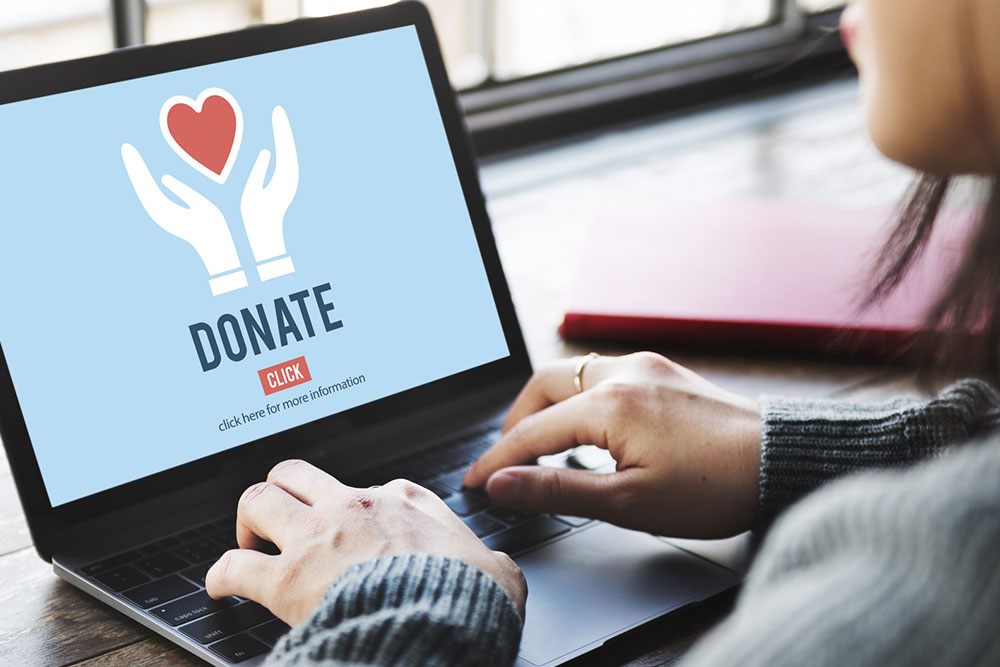Everything to know about charities and donations

“The smallest act of kindness is worth more than the grandest intention,” Oscar Wilde said. In an increasingly individualistic world, treading beyond one’s four walls and donating for the greater good can help transform lives, empower communities, and make the world a better place. Engaging in charitable deeds targeted to specific groups and communities is a systematic approach to philanthropy. Here are some types of charity and ways to donate for society’s betterment:
Types of charity
Childcare associations
A childcare organization or association deals with the welfare and protection of individuals below the age of 18. These organizations may be government-aided or NGOs and may involve a host of philanthropic activities revolving around children, from feeding and educating underprivileged children to planning their lessons, supervising their playtime, providing toys and clothing, and creating a safe social environment for underprivileged and homeless children. Child counseling, therapy, and family interactions may also be a part of this process. Donating to such charitable organizations in cash or kind can help ensure better opportunities for children in terms of resources, education, and environment.
Animal welfare groups
Animal welfare groups or charitable organizations help with rescuing and rehabilitating domestic as well as wild animals and providing them with better lives. They also work dedicatedly toward taking action against animal cruelty and fostering young, orphaned animals, helping them find welcoming homes. Contributing to animal welfare organizations helps them carry out these tasks more efficiently, engaging in rescue operations and ensuring that their food and healthcare supplies are always attended to.
Pro bono law charities
This type of charity – albeit underrated – is highly relevant in the modern scenario. Pro bono law charities essentially help individuals requiring legal assistance find qualified lawyers to help fight their cases and defend their stances. Since the affected individuals do not need to pay for these lawyers, such pro bono law charities make a substantial difference in the lives of the downtrodden, who need support and guidance to make themselves heard in legal proceedings.
Art associations and groups
Art is a means of expression and a representation of cultural values and ways of life. Hence, preservation and promotion of art is crucial to ensure that different forms of artistic expression survive and thrive in the modern world. Art associations strive to fulfill this objective, supporting artists and local communities to present their artwork to the general public. Thus, supporting these organizations through charity is a noble act to promote art in its myriad forms and provide a platform for skilled artists.
Environment conservation groups
As the name suggests, environment conservation groups work dedicatedly toward the conservation of nature, wildlife, and natural habitats, encouraging afforestation, promoting sustainability, and preventing the misuse of natural resources. Against the backdrop of the modern population explosion, environmental protection, and sustainability are needs of the hour. Contributing to charitable organizations engaged in such activities can help ensure a sustainable existence for future generations.
Sports charities
Sports activities remarkably impact physical, mental, social, and emotional health. Sports-based charities are excellent avenues for sports enthusiasts and those looking to make a difference in the lives of aspiring sports players. One may directly donate to organizations supporting individual sports or aspirants, or charities that help such organizations flourish.
Geriatric charities
According to recent reports, 34% of older adults across the country have reported feeling isolated, indicating the prevalence of declining emotional well-being among the elderly. Geriatric charities and organizations are dedicated to improving the health and well-being of the elderly. These charities provide homeless older adults with basic necessities such as food, clothing, and shelter, as well as access to healthcare supplies and services. They also assist them with daily activities and ensure their mental and emotional well-being is taken care of.
Self-help groups
Self-help groups consist of people who unite to achieve certain common objectives, such as giving up a vice, leading financially independent lives, and developing a community. These groups typically function to gather funds to meet such ends. One may pick self-help groups based on one’s interests and inclination. For example, individuals inclined toward women empowerment and emancipation may contribute to women’s self-help groups. At the same time, those looking to empower a certain community may choose to donate to groups dedicated to this cause.
Tips to donate to reliable organizations
Verify the organization’s reliability
It is not uncommon for individuals to be scammed by imposters or fake charitable organizations. Hence, it is essential to verify an organization’s credibility and genuineness before proceeding with a contribution. Some ways to do so include checking the organization’s presence online, asking for proof of registration, checking the tax deductibility clauses, and connecting with friends and family members to understand their experiences.
Avoid paying through gift cards and wire transfers
Gift cards and wire transfer requests are common ways scammers exploit gullible donors. Hence, it is always advisable to donate through conventional modes of payment to avoid such untoward incidents.
Review bank account statements after donating
Another essential step is to check one’s bank account statement or transaction history immediately after donating to ensure that only the amount one has agreed to donate has been deducted. Moreover, it is essential to verify that the organization has not signed one up for recurring donations if one has not agreed to do so.
Donate only to organizations with encrypted web pages
It is particularly easy to get scammed while donating online. Hence, it is important to donate only to those websites that are “secure” or have “https” appended at the start of their website links. Although such checks do not guarantee protection against fraudulent activities, they help reduce one’s risks of donating to scammers.
Keep a record of charitable activities
It is important to maintain a record of one’s charitable activities to ensure that one remembers to claim tax returns wherever applicable and can allocate a specific aggregate budget range toward donations.


